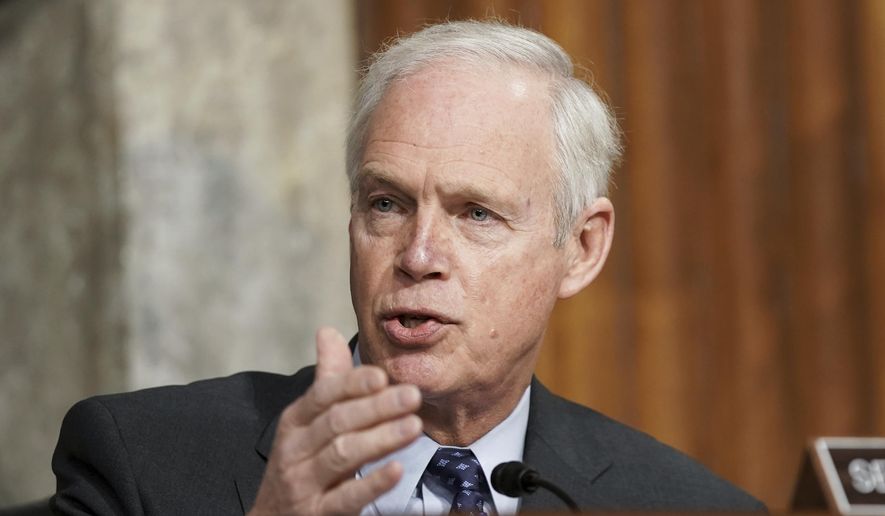Democratic efforts to include a special $50,000-per-year journalist tax break within President Biden’s $3.5 trillion spending package have sparked accusations of “media collusion.”
Sen. Ron Johnson argued the tax credit would create an improper relationship between the federal government and the nation’s leading media outlets. Such relationships, according to the Wisconsin Republican, could be exploited for propaganda purposes.
“Not only is this proposal a grotesque waste of taxpayer money,” said Mr. Johnson, “it would be a dangerous precedent of government collusion with the media. Biden’s collusion with the press has already caused enough damage to freedom of speech and freedom of the press.”
Democratic lawmakers within the House Ways and Means Committee have crafted the tax credit as part of their 881-page proposal they say will ensure Mr. Biden’s big-spending legislation is fully funded.
The tax credit would allow “local news” outlets to receive a quarterly tax credit, “equal to 50%” of a journalist’s wages up to a cap of $12,500-per-quarter.
Overall, eligible outlets could receive as much as $50,000 annually per journalist in tax breaks through the program in its first year. In subsequent years, the credit would drop to 30% of a journalist’s wages per quarter.
Democrats propose to let the tax credit expire after five years unless Congress votes to renew. The Joint Committee on Taxation estimates the credit could wind up costing taxpayers more than $1.3 billion through 2031.
Republicans say that it amounts to a giveaway to the “mainstream news media,” which is often noted for its antagonistic relationship with conservatives.
“Freedom of the press does not contemplate government funding of it,” Mr. Johnson said.
GOP lawmakers also question the criteria the federal government will use to define which news organizations are eligible.
As written any “local newspaper publisher” that serves “the needs of a regional or local community and who employs no more than 750 employees” would be eligible. The criteria are broad enough to cover major newspapers with a national reach.
Democrats dispute such claims, saying the bill is meant to benefit local news outlets, especially those that have seen ad revenues fall because of the coronavirus pandemic.
“Local journalism is a bedrock pillar of communities across the United States,” said Rep. Anne Kirkpatrick, an Arizona Democrat who helped author the tax credit. “Unfortunately, journalistic endeavors throughout the country face major economic struggles that put the future of many publications in serious jeopardy.”
Mrs. Kirkpatrick has introduced the bill in prior years, oftentimes with the backing of Democratic leadership and outside groups, like the AFL-CIO. Despite the support, the bill has never made significant progress because of GOP opposition.
That might change this time because of the unique circumstances Democrats are undertaking to pass Mr. Biden’s $3.5 trillion spending package into which the tax credit for journalists is being folded.
Democrats plan to force through the massive spending bill without support from a single Republican. They will use a special procedure known as budget reconciliation that allows some tax and spending measures to avert the 60-vote filibuster threshold and pass by a simple majority of 51 votes.
• Haris Alic can be reached at halic@washingtontimes.com.




Please read our comment policy before commenting.